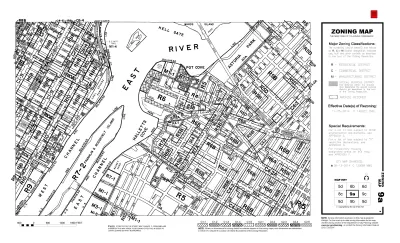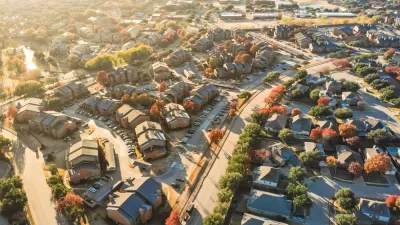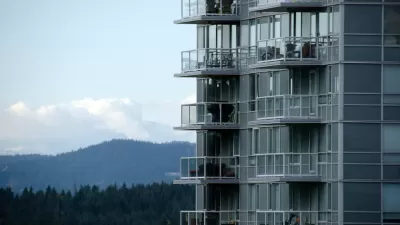An editorial in the New York Times argues that exclusionary zoning reinforces segregation and must be curbed.

Richard D. Kahlenberg sees segregation written into the zoning laws of American cities and towns. Even though racial segregation laws have been struck down by the Supreme Court, exclusionary zoning endures, and that zoning, Kahlenberg argues, is fueling segregation.
"The Supreme Court’s comparative willingness to tolerate explicit economic discrimination is mirrored in American public policy," Kahlenberg argues. These laws and policies have ensured that, while racial segregation has decreased, class segregation has increased. "Exclusionary zoning frustrates the Fair Housing Act’s aim by erecting barriers that exclude millions of low-income African-Americans and Latinos from wealthier white communities," Kahlenberg writes.
Kahlenberg sees a solution in a curb on the extent of zoning, either with an outright ban or a punitive action. "If we can’t achieve a ban, we should assess a penalty on municipalities that engage in discriminatory zoning, either by withholding infrastructure funds or limiting the tax deduction that homeowners in those towns can take for mortgage interest," he writes.
FULL STORY: The Walls We Won’t Tear Down

Planetizen Federal Action Tracker
A weekly monitor of how Trump’s orders and actions are impacting planners and planning in America.

Restaurant Patios Were a Pandemic Win — Why Were They so Hard to Keep?
Social distancing requirements and changes in travel patterns prompted cities to pilot new uses for street and sidewalk space. Then it got complicated.

Map: Where Senate Republicans Want to Sell Your Public Lands
For public land advocates, the Senate Republicans’ proposal to sell millions of acres of public land in the West is “the biggest fight of their careers.”

Maui's Vacation Rental Debate Turns Ugly
Verbal attacks, misinformation campaigns and fistfights plague a high-stakes debate to convert thousands of vacation rentals into long-term housing.

San Francisco Suspends Traffic Calming Amidst Record Deaths
Citing “a challenging fiscal landscape,” the city will cease the program on the heels of 42 traffic deaths, including 24 pedestrians.

California Homeless Arrests, Citations Spike After Ruling
An investigation reveals that anti-homeless actions increased up to 500% after Grants Pass v. Johnson — even in cities claiming no policy change.
Urban Design for Planners 1: Software Tools
This six-course series explores essential urban design concepts using open source software and equips planners with the tools they need to participate fully in the urban design process.
Planning for Universal Design
Learn the tools for implementing Universal Design in planning regulations.
Heyer Gruel & Associates PA
JM Goldson LLC
Custer County Colorado
City of Camden Redevelopment Agency
City of Astoria
Transportation Research & Education Center (TREC) at Portland State University
Camden Redevelopment Agency
City of Claremont
Municipality of Princeton (NJ)





























